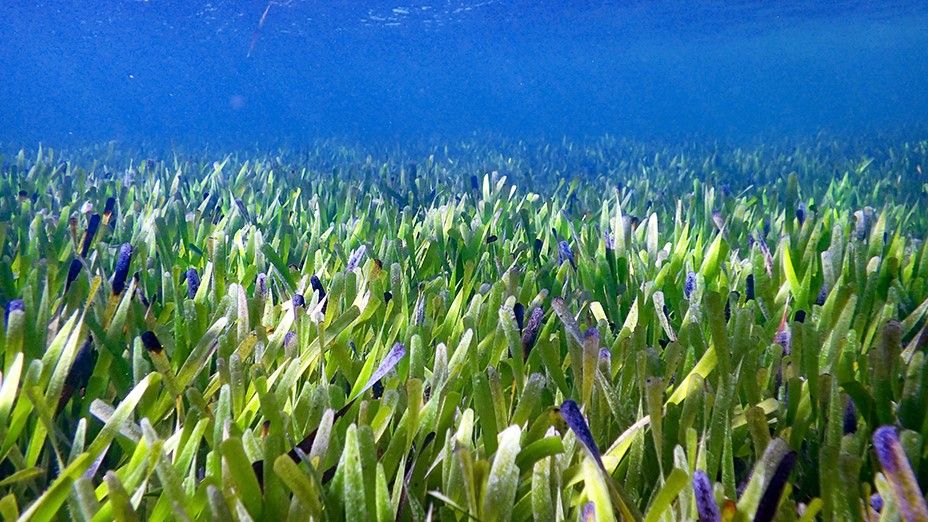Shark Bay: Home to Earth's largest plant -- an immortal, self-cloning seagrass meadow stretching 112 miles
By Sascha Pare published 16 hours ago
A 77-square-mile seagrass meadow at the bottom of Shark Bay in Western Australia is both Earth's largest plant and largest clone.

An underwater picture of seagrass in the immortal seagrass meadow at Shark Bay.
The seagrass meadow at Shark Bay will keep expanding for as long as it is undisturbed, researchers said. (Image credit: Rachel Austin)
The crystal-clear waters of Shark Bay are home to the world's largest plant: a seagrass meadow spanning 77 square miles (200 square kilometers) and stretching 112 miles (180 kilometers) from end to end. The shoots that make up the massive meadow all originate from one stem, which researchers estimate is at least 4,500 years old.
Researchers analyzed the genetic makeup of the seagrass at Shark Bay for the first time in 2022. They discovered that almost all the Poseidon's ribbon weed (Posidonia australis) — which grows in a network of meadows inside the bay — was genetically identical, indicating that the weeds belonged to one plant. Unlike other types of seagrass, which reproduce sexually, this meadow appeared to be continually cloning itself through an underground stem called a rhizome.
On the sandy seafloor, the self-cloning seagrass meadow forms clumps of grass that look like separate organisms, but underground, the shoots are connected to form "the largest clone in any environment on Earth," the researchers wrote in the study.
&feature=youtu.be
This means the Shark Bay seagrass dwarfs the previous record-holder: The second-largest clone on record is a 9-mile-long (15 km) meadow of Posidonia oceanica seagrass in the western Mediterranean Sea.
More:
https://www.livescience.com/planet-earth/plants/shark-bay-home-to-earths-largest-plant-an-immortal-self-cloning-seagrass-meadow-stretching-112-miles
